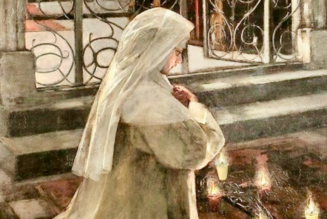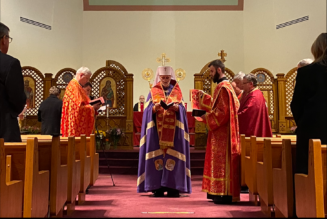One of the most worrying features of modern times is the falling away of young people from the ways of faith.
The sad fact is that we Catholics seem to be struggling to fill young hearts with the joy of the Gospel — with the certainty that each has an indispensable role in salvation history. Our secular world insists that anything transcendent is an illusion. As a result, we’ve gotten used to the dark ways life becomes disordered and weary when meaning and purpose are absent from our lives.
It’s a surprise, then, that the person who seems to have a key to the great puzzle of how to reach young people on a spiritual level isn’t very religious.
Canadian clinical psychologist Jordan Peterson has arguably become the West’s most prominent cultural and intellectual influencer of late. His videos and best-selling books have attracted millions of young followers.
I went to hear him speak last month in Miami to better understand him. Some 3,000 people, most of them under 35, sat in rapt attention as he spoke about the human need for a philosophy rooted in the transcendent. The discourse was university level, a compliment to the audience that knew it wasn’t being condescended to.
In digging into some of his writings, talking to young people who follow him (among them my two young adult sons), I’ve come to appreciate his attempts to teach them a way out of the blankness and despair of skepticism and into the easement of moral certainty.
As a professed agnostic, I’m sure Peterson is out of step with the Church on several crucial subjects of social teaching. But after checking him out for myself, I’ve come to believe we Catholics can learn a valuable lesson from him.
At the heart of Peterson’s ideas is this: First, life is difficult and filled with suffering. There are afflictions we can’t control, like illness, the loss of loved ones, war, and natural disaster. Even worse is what he calls “malevolence”: the dark parts of our nature that hurt others, and the malevolence of those around us that wounds us.
That is the baseline condition of life, and to young people who suffer it comes as a relief to learn that it is everyone’s experience.

Zach Blomberg holds up a cross as students and others take part in the Stations of the Cross on the campus of Arizona State University in Tempe, Arizona, in this 2016 file photo. (CNS/Nancy Wiechec)
The good news, according to Peterson, is that we can still prevail. We can “take up arms against the sea of troubles, and by opposing, end them.” Or if we cannot end them, we can courageously confront them. We are not victims but protagonists, and able ones, at that.
Second, Peterson proposes that the first step toward a life of meaning is the adoption of responsibility, starting with our own actions and moving out to our families and then to the community. In cultivating this sense of responsibility, our lives acquire meaning and purpose, shaping us into the kind of men and women that shine like lights in a dark world that others rely on.
Both ideas are familiar to people of faith. The Scriptures remind us that we are pilgrim wanderers traversing a “vale of tears.” And the malevolence that adds the horror of purposeful injury to the accidental cruelties of our days is nothing else but original sin, the inky darkness that lives deep inside each of us, without exception.
As for the responsibility that leads to meaning — it is a great responsibility for a Christian to know himself as a son or daughter of God. With that knowledge comes the welcome weight of eternal duties, to Father and neighbor, to the greater good and to the created order itself.
When Peterson proposes responsibility to young people raised on a steady diet of self-esteem and the “pursuit of happiness” as the meaning of life, they immediately recognize it as a lifebuoy.
That’s especially true for young men. They are aching for a challenge, for a citadel to conquer, even if the first one is, in Peterson’s famous words, “make your bed.” Whether male or female, they know, inside, that they were created not for the banal pursuit of comfort but for the glorious adventure of heroic deeds and noble purposes, and it is to this intuition that Peterson speaks.
And it is to this intuition that I think we Catholics are not effectively speaking. In listening to Peterson, I was reminded that for too long, we’ve taught our religion as a comforting, healthy way to pursue happiness and grow our self-esteem.
We’ve forgotten, at times, the meaning that comes from taking on responsibility — for our relationship with God, for the beautiful practices of our faith, for our brothers and sisters. If Peterson starts with “make your bed,” perhaps we can start with “go to Mass on Sunday,” because it is in the fulfillment of duty that the heart is engaged and enkindled, and that dysfunction becomes peace.
Jesus Christ modeled and proposed a life of valorous responsibility: The words “Take up your cross and follow me” call us to something different, to face crushing situations with hope. Jesus goes a huge step forward, of course: His shouldering of the responsibility of mankind’s sins is the cure for the malevolence that plagues us.
What can be more important than speaking to the emptiness that so many young people experience? We know, after all, that our faith is in one who promises “the words of eternal life.”
Join Our Telegram Group : Salvation & Prosperity









